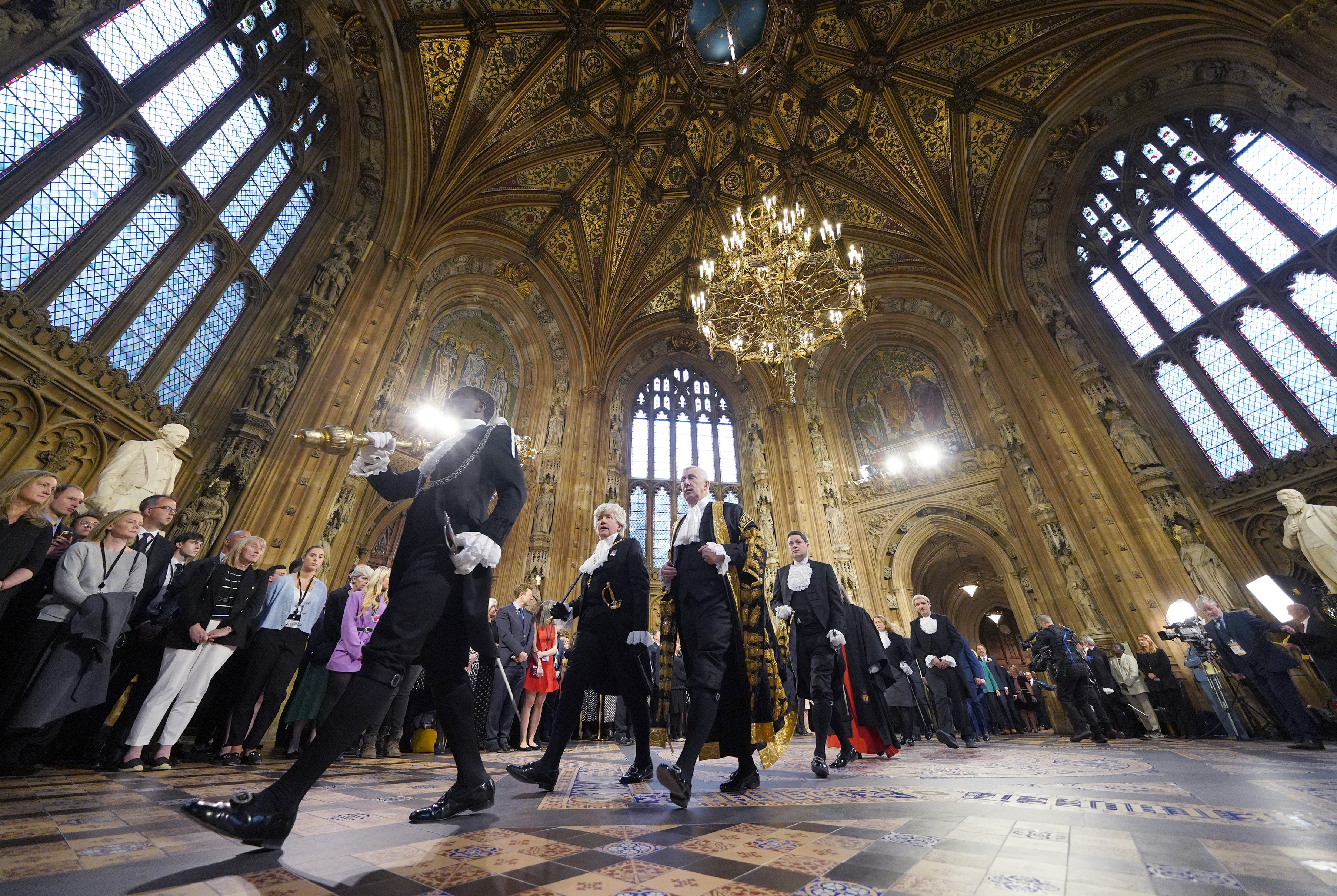New Bill of Rights could be ‘problematic’ for Scotland, expert says
Barbara Bolton, of the Scottish Human Rights Commission, said replacing current laws could create ‘a whole raft of confusion and uncertainty’.

Your support helps us to tell the story
From reproductive rights to climate change to Big Tech, The Independent is on the ground when the story is developing. Whether it's investigating the financials of Elon Musk's pro-Trump PAC or producing our latest documentary, 'The A Word', which shines a light on the American women fighting for reproductive rights, we know how important it is to parse out the facts from the messaging.
At such a critical moment in US history, we need reporters on the ground. Your donation allows us to keep sending journalists to speak to both sides of the story.
The Independent is trusted by Americans across the entire political spectrum. And unlike many other quality news outlets, we choose not to lock Americans out of our reporting and analysis with paywalls. We believe quality journalism should be available to everyone, paid for by those who can afford it.
Your support makes all the difference.Proposals from the UK Government to introduce a new Bill of Rights is “problematic”, an expert has said.
Barbara Bolton, head of legal and policy for the Scottish Human Rights Commission, said replacing the current Human Rights Act would create “a whole raft of confusion and uncertainty”.
A plan to bring forward a Bill of Rights was confirmed in the Queen’s Speech on Tuesday, after a pledge to reform human rights laws was included in the Tory manifesto in 2019.
The Government said the changes will strengthen “freedom of speech” and bring “proper balance” between the rights of individuals and effective politics.
But Ms Bolton, giving evidence to Westminster’s Joint Committee on Human Rights on Wednesday, warned of the problems doing so could create for both citizens and the devolution settlement within the UK.
Ms Bolton told the committee that since the creation of the Human Rights Act, “significant progress” had been made in Scotland.
“There’s much to be done,” she pointed out, but added she did not “recognise the very negative portrayal” of the Act in the consultation paper.
She said that while the Act has ensured an understanding and appreciation of what is encompassed in the legislation, the proposals for change have caused extreme concern for the commission, particularly the negative impact it would have on access to justice and remedy for individuals across society.
The idea that some human rights breaches do not warrant a remedy would undermine a human rights culture
She said the barriers to accessing justice as things stand are already “quite incredible”, adding that “instead of addressing those issues and making it easier for people to enforce their rights”, the Government would be making it “vastly harder” by introducing further hurdles before people can bring cases to tribunals or court.
“We all have those rights,” Ms Bolton told the committee. “Every individual has those rights, and regardless of what may have happened in your earlier life, when you come forward to advocate for your rights, you’re treated the same as everybody else.
“It’s fundamental to human rights principles.
“The idea that some human rights breaches do not warrant a remedy would undermine a human rights culture by suggesting that there’s a certain level of human rights breaches that we can live with.”
Ms Bolton said there was further concern from the Scottish Human Rights Commission due to the interrelationship between devolution and the human rights framework in Scotland.
The Human Rights Act has been embedded into the Scotland Act, she said, while the remit of competence for both the Scottish Government and Scottish Parliament have been set with reference to the content of Convention rights.
Ms Bolton said this situation had not been given any recognition in the consultation on the proposed changes, despite the fact the move could cause a knock-on impact on what that means for the remit of the Scottish Government.
She warned introducing a new Bill of Rights could “potentially unsettle” the progress made in Scotland since the introduction of the Human Rights Act.
The Scottish equalities minister earlier reiterated her “grave concerns” over the plans, arguing that the Act’s safeguards are “an essential feature of a democratic society founded on the rule of law”.
Christina McKelvie said: “The Human Rights Act has successfully protected rights and freedoms across the whole of the UK for more than 20 years. We will continue to robustly oppose any attempt to replace it with a Bill of Rights.”
A UK Government spokesperson said: “Our proposals will strengthen British human rights, such as freedom of expression, while staying a party to the European Convention on Human Rights and adding a healthy dose of common sense.
“We want everyone to benefit from a new Bill of Rights and have sought views from across the UK on how best to deliver these reforms while reflecting the different interests and histories of all parts of the UK.”